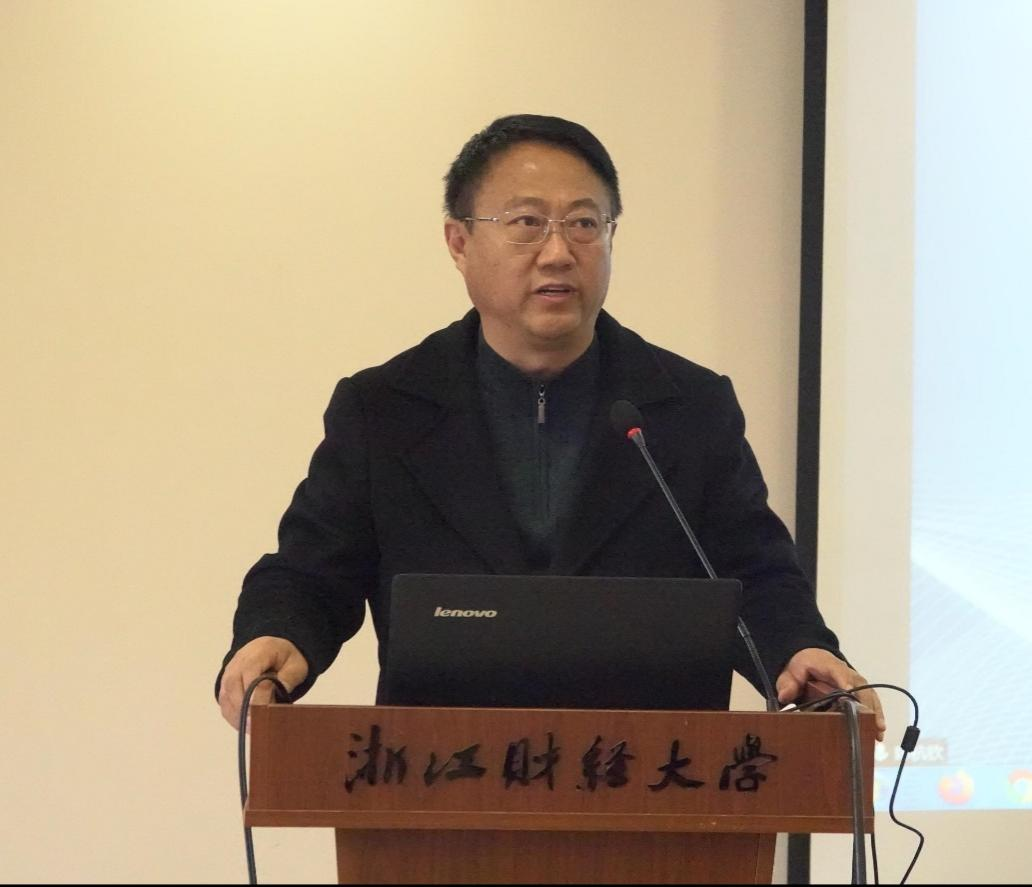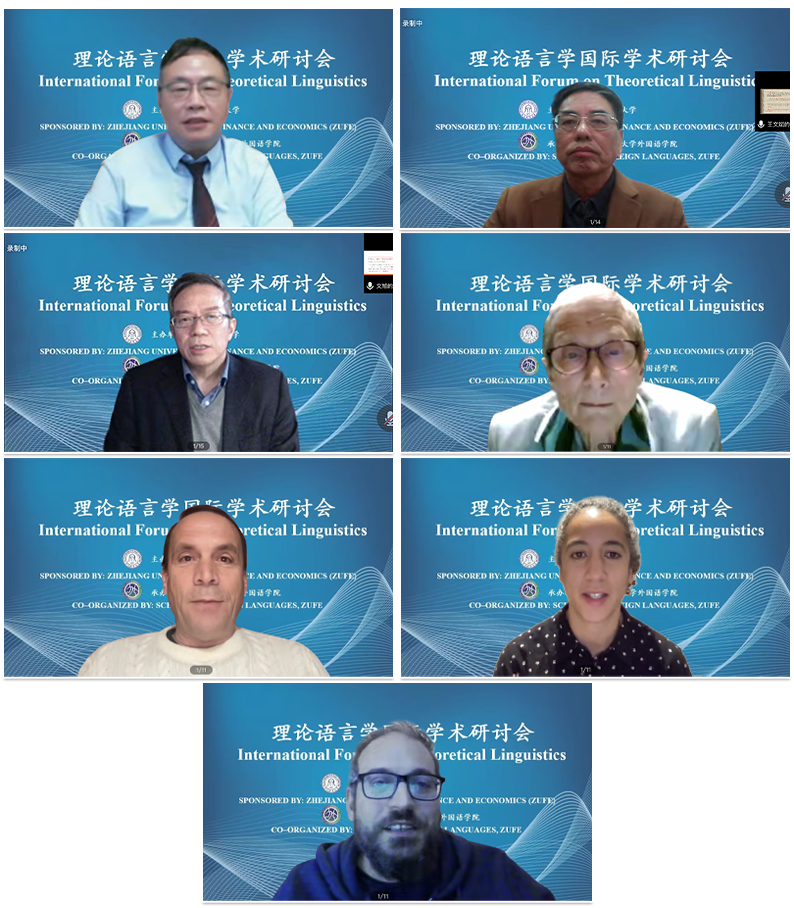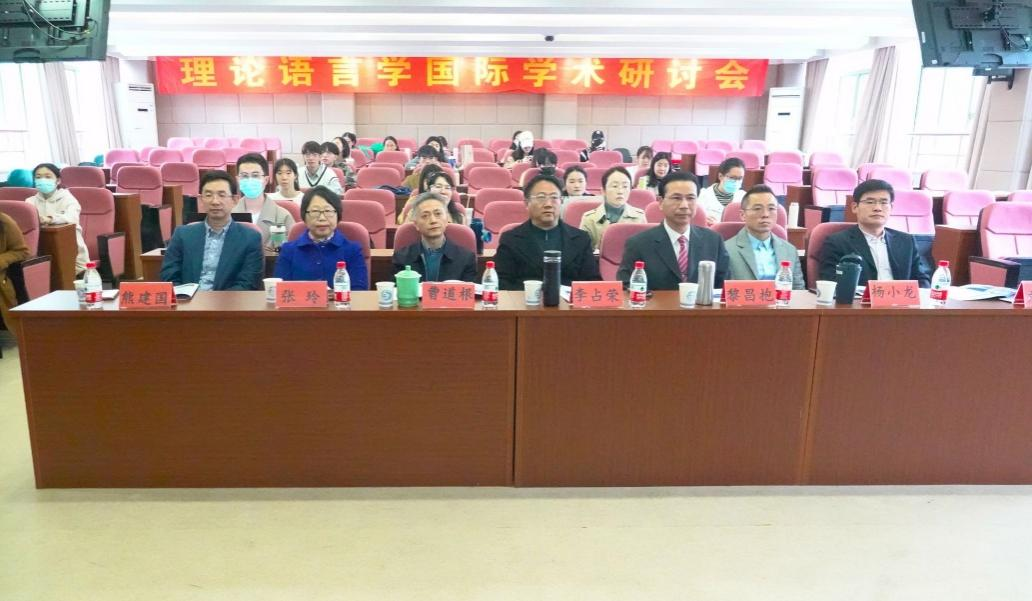The International Symposium on Theoretical Linguistics was recently held on ZUFE’s Xiasha campus. Li Zhanrong, ZUFE’s Vice President attended the opening ceremony and delivered a speech. Experts and scholars from King's College London, University of Essex, University of Malta, Beijing Foreign Studies University, and other universities, as well as teachers and students of ZUFE attended the Symposium. The Symposium was held both online and offline.

Li introduced the basic information of ZUFE and the achievements of foreign languages and literature to the experts and scholars at the Symposium. He expressed the hope that the Symposium would build a platform for international academic exchange for ZUFE’s teachers, scholars, and students of linguistics, strengthen interaction with experts and scholars in the field of linguistics at home and abroad, and improve ZUFE’s research level in cutting-edge linguistics, thus expanding its international academic influence.

At the Symposium, Xu Jie, Professor of the University of Macau; Wen Xu, Professor of Southwest University, China; Wang Wenbin, Professor of Beijing Foreign Studies University; Ruth Kempson, Professor of King’s College London; Lutz Marten, Professor of the College of Oriental and African Studies, University of London; Hannah Gibson, Professor of the University of Essex; and Stavros Assimakopoulos, Professor of University of Malta gave presentations entitled “Update and Problem Reset in Linguistic Theory Research,” “Exploration of Cross-Cultural Cognitive Linguistics,” “Why Linguistic Research Should Pay Attention to Comparative Language Research,” “Dynamic Syntax: Language as a Tool for Interaction,” “Conceptual and Procedural Meaning in Grammar,” “The Power of Building and Rebuilding Structure: From Compound Constructions to Translanguaging,” “Beyond Comprehension: A Reappraisal of the Traditional Domain of Pragmatics,” respectively.

This Symposium aimed to explore the common laws and universal features of human language by exploring frontier issues such as the linguistic characteristics and development rules, and fully probe the academic connotation of theoretical linguistics. To conclude, the discussion was lively and exciting.
